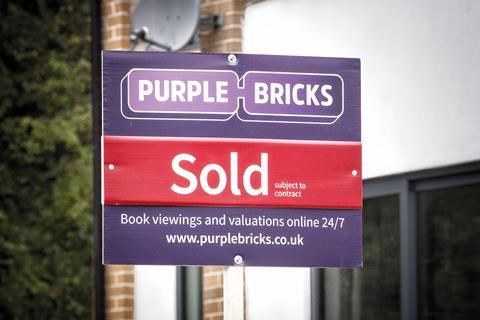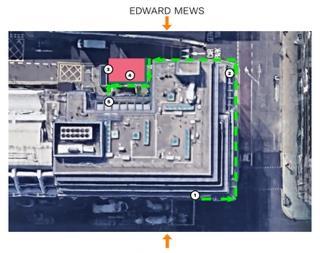Purplebricks, the “world-leading hybrid estate agency” has, it admitted on 7 May, “made sub-optimal decisions in allocating capital”. That’s the best euphemism I’ve seen for “lost money”.

Even as stock exchange warnings go, it was a bombshell. The Australian division, the first of the group’s international forays, is to be closed amid “increasingly challenging” market conditions and “some execution errors”. The US business is to see “materially cut investment” followed by a strategic review to assess what part of the sprawling network can be salvaged and placed on a “more effective and cost-efficient” footing. The UK market “remains challenging”, although the business is said to be outperforming the market.
Founder and chief executive Michael Bruce stepped down “with immediate effect”, to be replaced by chief operating officer Vic Darvey.
Meanwhile, chairman Paul Pindar’s penitential tone could have rivalled a disgraced Japanese industrialist: “We are very conscious that the group’s performance has been disappointing over the last 12 months and we sincerely apologise to shareholders.”
As well he might. After sliding from a peak of 511p in August 2017, shares tumbled a further 12% to 119p on the day and as low as 90p a fortnight later, before creeping back above the 2015 float price of 100p.
Pindar did not stop there: “With hindsight, our rate of geographic expansion was too rapid and as a result the quality of execution has suffered,” he said.
I’m not sure how much hindsight was needed. It is beyond me and other observers why a company that had only just got off the ground in Britain chose to move 10 time zones to the east (Australia) then eight to the west (California), followed by New York, Florida, Canada and even Germany. All very disparate markets and a lot of airmiles needed if things go wrong.

The model, moreover, for most of the online or hybrid ‘disruptors’ requires relentless and expensive advertising. Rival online agents Emoov, Hatched and Tepilo have closed or entered administration. Although cheaper than high-street agents, Purplebricks’ main model involves having to be paid – irrespective of whether or not properties sell. This risks bad press, especially in slow markets when well-established agents arguably can use local knowledge and contacts to unblock stalled chains more successfully than Purplebricks’ network of ‘local property experts’.
In the event the company moves to a payment-upon-completion model in the UK (as it has started to do in the US) the bigger disruption could be to the company’s cashflow and profitability rather than the competition. As I wrote in this column a year ago, “reports of the death [of the local estate agent] may be exaggerated.
Modular construction
Another potential housing market ‘disruptor’ appeared last month. Japanese residential builder Sekisui House announced a £90m deal with the government’s affordable homes agency, Homes England, and northern-focused developer Urban Splash to deliver thousands of factory-built homes across England. Sekisui will take a 35% stake in Urban Splash’s existing modular business, House, and share its modular manufacturing experience.
I was struck by a sense of déjà vu. More than 30 years ago, one of my first ‘scoops’ as a technical correspondent on Building was a story that a Japanese modular firm was eyeing these shores with the intention of revolutionising housebuilding. The subtext was that the more traditional developers, along with armies of brickies, might as well pack up shop.
Of course, it never happened. Various purveyors of ‘modern methods of construction’ have tried, with mixed but limited success, to manufacture in bulk. The problem is that volume housebuilders have been at best gradualist in their adoption, using timber frame panels and the odd pre-assembled chimney etc.
Could this attempt work? Perhaps: the difference is who is backing this latest initiative. The government and one of Japan’s biggest builders are convincing enough. But the potential deal-breaker is that Urban Splash is truly committed to and has experience of off-site construction rather than purchasing components from third parties, as is the case with mainstream housebuilders.
These disruptors may well succeed, but progress in housing and housebuilding is normally evolutionary rather than revolutionary – as the backers of now struggling online agents know all too well.
Alastair Stewart is an equities analyst and consultant






























No comments yet